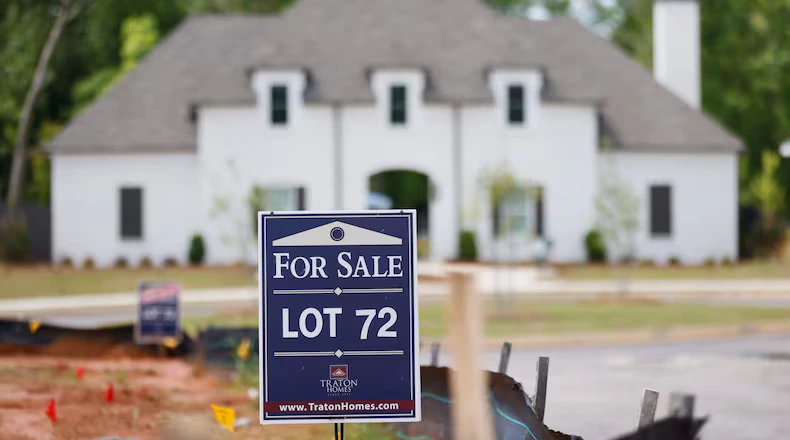
The real estate industry thrives on trust, but recent allegations against 72 Sold have sparked significant debates about ethics, transparency, and accountability. 72 Sold, a program known for its promise of selling homes in as little as 72 hours, now faces legal scrutiny that may reshape how real estate programs operate. This article delves into the 72 Sold lawsuit, exploring the controversy’s details, its broader implications for the industry, and what it means for homeowners and real estate agents alike.
Introduction
The 72 Sold lawsuit centers on allegations of misleading advertising, hidden fees, and unethical business practices. The program, marketed as a revolutionary approach to fast home sale programs, has drawn both admiration and criticism. While some homeowners praise its efficiency, others have voiced concerns about transparency, fees, and unmet promises. As the case unfolds, it has become a landmark moment, raising questions about real estate program transparency and the ethical standards of the industry.
What is 72 Sold?
Founded in 2018 by Greg Hague, 72 Sold is designed to simplify the home-selling process. It markets itself as an alternative to traditional methods, promising quick results by creating competition among buyers. Through partnerships like the one with Keller Williams, the program expanded its reach across the U.S., operating in over 38 markets.
However, its rapid rise has not been without challenges. Critics claim that the program’s promises are often unfulfilled, leading to the 72 Sold marketing controversy and subsequent legal battles.
The Allegations in the 72 Sold Lawsuit
The lawsuit against 72 Sold brings forth several key accusations:
- Misleading Advertising Practices: Plaintiffs allege that the company failed to deliver on its core promise of selling homes within a short timeframe.
- Hidden Fees and Commission Structures: Many homeowners reported being unaware of additional charges until they were well into the process. This lack of upfront disclosure has raised questions about contract and fee disclosures.
- Deceptive Sales Tactics: The lawsuit claims that the company used high-pressure sales tactics, leaving homeowners feeling rushed and misinformed.
- Real Estate Agent Accountability: Questions have arisen about the role of agents within the program, particularly their duty to ensure transparency.
These allegations have sparked a broader conversation about ethics in real estate transactions and the responsibility of companies to prioritize consumer interests.
Impact on Homeowners and Consumers
The lawsuit has had a profound effect on consumer confidence. Many homeowners involved in the case claim they were misled by the program’s marketing, highlighting the need for consumer protection laws. The case serves as a reminder for consumers to:
- Review contracts carefully: Hidden fees can lurk in the fine print.
- Ask detailed questions: Understanding the full scope of services and charges is critical.
- Seek legal advice if unsure: When in doubt, consult a legal professional before signing agreements.
Industry-Wide Repercussions
The 72 Sold lawsuit is more than just a legal battle; it’s a wake-up call for the real estate sector.
- Increased Regulatory Scrutiny: Regulatory bodies are likely to impose stricter rules on marketing and operational practices, ensuring companies are held accountable.
- Focus on Transparent Advertising in Property Sales: Real estate programs will need to prioritize clear and honest communication with consumers.
- Reevaluation of Marketing Strategies: Companies may shift away from aggressive, results-driven advertising to avoid similar lawsuits.
Real estate agents and brokers are also reassessing their roles. For many, this case underscores the importance of real estate agent accountability and ethical behavior.
Legal Outcomes in Real Estate Litigation

The potential outcomes of the 72 Sold lawsuit vary widely:
- Financial Penalties: If found guilty, the company may face significant fines or be required to compensate affected homeowners.
- Mandatory Reforms: A ruling could force changes in the company’s marketing and operational strategies.
- Industry Precedents: A strong judgment against 72 Sold could set a legal precedent, impacting how other companies operate.
Regardless of the outcome, the case has already brought significant attention to home selling scams or disputes, raising awareness among both consumers and professionals.
Lessons for Real Estate Professionals
For real estate agents and brokers, the 72 Sold lawsuit offers important takeaways:
- Prioritize Transparency: Clear communication about fees, contracts, and timelines is essential.
- Focus on Ethics in Real Estate Transactions: Building trust with clients through ethical practices can prevent legal challenges.
- Stay Informed About Consumer Protection Laws: Understanding and adhering to regulations protects both agents and consumers.
How Homeowners Can Protect Themselves
To avoid similar issues, homeowners should take proactive steps:
- Conduct thorough research: Understand a program’s reputation before signing up.
- Request detailed explanations: Don’t hesitate to ask for clarifications on fees and terms.
- Verify promises in writing: If a company guarantees certain results, ensure it’s documented.
FAQs
1. What is the 72 Sold lawsuit about?
The lawsuit alleges that 72 Sold engaged in misleading advertising practices, failed to disclose hidden fees, and used deceptive sales tactics, leading to dissatisfaction among homeowners.
2. How does this lawsuit impact the real estate industry?
The case has led to regulatory scrutiny in real estate, with potential changes in marketing strategies, transparency standards, and ethical practices.
3. What can homeowners learn from this lawsuit?
Homeowners should be cautious, review contracts thoroughly, and seek legal advice if needed. The case highlights the importance of understanding all terms before committing.
4. What are the potential outcomes of the lawsuit?
Possible outcomes include financial penalties, operational reforms, or industry-wide changes in how real estate programs are marketed.
5. How can real estate agents avoid similar issues?
Agents should focus on transparent advertising, clear communication, and adherence to ethical standards to build trust with clients.
For more interesting blogs, visit our site: https://futuretrendz.co.uk/
Conclusion
The 72 Sold lawsuit has brought critical issues in the real estate industry to the forefront, emphasizing the need for transparency, ethical practices, and accountability. Whether you’re a homeowner, agent, or industry stakeholder, this case serves as a reminder of the importance of trust in real estate transactions.
As the legal proceedings continue, the real estate sector must adapt to these challenges, ensuring a more ethical and transparent future. Stay informed, ask questions, and advocate for your rights as a consumer or professional.







